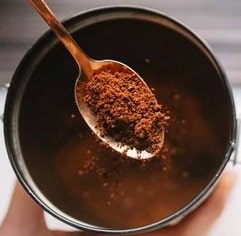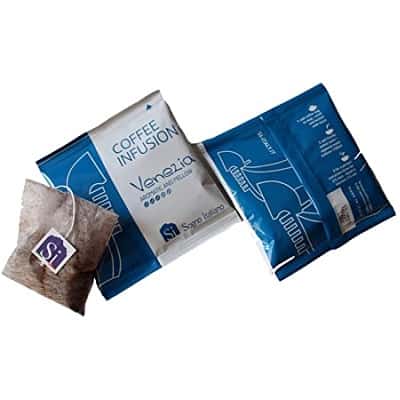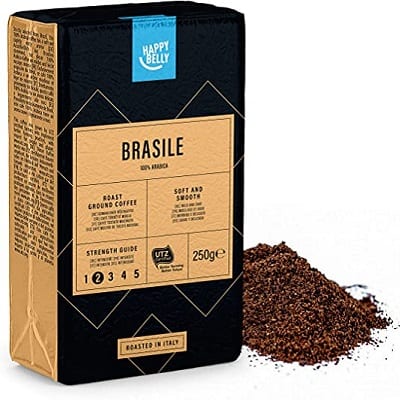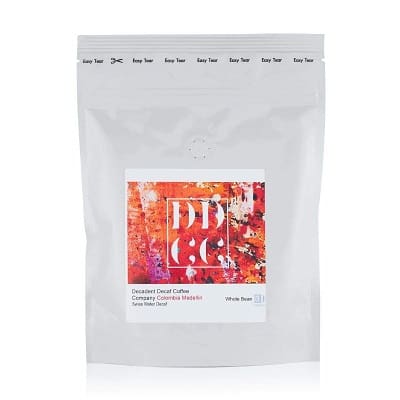Coffee still retains its reserved corner in this realm of artificial flavouring, modern diet, and fried potato products. Imagine, after poring over your work until 4 am, waking up and functioning without having coffee in your system is challenging. Ideally, you may want to put effort into using that French press, but we know that is not going to happen.
In such a situation, a brewed cup of aromatic roasted coffee is what we all want. However, more often than not, laziness gets the better of us, and we opt for instant coffee. It may not be as tasty as freshly brewed coffee, but it does fulfil our appetite for caffeine and has the same benefits. Have you ever wondered, is instant coffee bad for you? Well, let us discuss it.
Manufacturing of Instant Coffee

Before getting into the pros and cons of instant coffee, let us first discuss its manufacturing process. To make instant coffee, manufacturers buy defective coffee beans from farmers. Additionally, these are the ones that fresh coffee bean sourcing companies reject; hence they are cheaper. Then, they roast these coffee beans and convert them into fine coffee powder. After grinding, they dissolve this coffee powder into water under high pressure.
You can say that they brew it partially, and the manufacturer dries this coffee mixture through freezing or spraying. It gives it a longer life compared to roasted coffee beans. Thus, it results in fine instant coffee granules, which they then package and brand.
How is Instant Coffee Different from Regular Brewed Coffee?
- Antioxidants and Nutrients
Instant coffee contains almost the same antioxidants and nutrients as brewed coffee. However, brewed coffee does seem to have a greater ratio of antioxidants. The antioxidants found in coffee boost your overall health and help in reducing your risk of developing illnesses.
In terms of nutrition, the main difference between coffee variants is with regards to levels of potassium. Ground coffee contains more potassium than instant coffee. We know the importance of potassium to maintain bodily functions, especially our heart and kidney health. However, too much of these minerals can also have reverse effects. That is why you have to be conscious of the amount of coffee you consume daily and not go over the limit.
- Caffeine Content
Coffee lovers know what sets instant and brewed coffee apart. You guessed it right; it is the levels of caffeine. An average cup of instant coffee will give you on average 60 to 80 mg of caffeine. Compared to this, a cup of regular coffee has about 80 to 120 mg of caffeine. Thus, there is quite a significant difference in your daily cup.
- Acrylamide
Instant coffee contains double the amount of Acrylamide than a freshly brewed, regular coffee. Acrylamide is an organic compound that forms due to the roasting of coffee beans at high temperatures and pressure. It also serves as a food preservative; thus, it gives instant coffee its long shelf life.
If your body gets Acrylamide exposure for a long duration, it can deteriorate your nervous system. Acrylamide is a potentially harmful chemical. Moreover, it is also a carcinogen that can cause ovarian and endometrial cancer. Coffee substitutes have maximum levels, while brewed coffee has the minimum Acrylamide.
- Subpar Coffee Beans
The coffee bean that contributes to instant coffees is far from the quality beans baristas use. These beans are the ones that got rejected and have no use elsewhere. Manufacturing companies source these cheap, bland, and astringent beans to make instant coffee.
Why is Instant Coffee Cheap?
What makes instant coffee “instant” is that it is a pre-brewed dry powder due to freeze-drying or spray drying at a low temperature. It means they have already been through the process of roasting and grinding.
The final product is freeze-dried coffee granules that you can add to boiling water and voilà! You have this popular beverage!
Instant coffee manufacturers opt for lower-grade whole beans to keep prices low. Some even choose to work with crops harvested the previous year. Instant coffee also has a longer shelf life, so there is no waste!
Additionally, manufacturers use a high percentage of robusta beans during the process. These have a higher yield, fewer food contaminants, and, as a result, do not weigh on the price.
Freshly Ground Coffee vs. Instant Coffee
Are you wondering as to why even make instant coffee? Instant coffee contains fewer levels of caffeine content. It is why someone who drinks too much coffee would be at a reduced risk of increased caffeine overload if they opt for a cup of instant coffee instead. Consequently, people who drink instant coffee have a lesser caffeine intake overall.
Instant coffee has no comparison with the aroma and taste of freshly ground coffee beans when it comes to taste. Caffeine consumption is not everything for regular coffee drinkers. Most of them crave the aromatic experience which fresh roasted coffee provides.
The sensory overload, the drip, and the awakening of taste buds with the premium taste is something that instant coffee cannot replicate. However, imagine you woke up late for work one day, and doing your morning routine seems like a task. Would you want to spare your time for brewing ground coffee beans in your coffee maker? Wait around for roasted coffee? Of course not! The logical thing would be to save time and make a quick cup of instant coffee! You’ll still get your caffeine hit but in way less time.
Benefits of Instant Coffee
Even though ground-up coffee and instant coffee have their differences, they are on the same page about health benefits.
Like regular brewed coffee, instant coffee can enhance your metabolism and improve brain function. Moreover, it can make you more energized, and contains essential nutrients. It also works great to prevent Alzheimer’s and Parkinson’s diseases. Instant coffee is also known to improve mental health, plus reduce the risk of diabetes and liver diseases. In addition, it means that these diseases are less likely to happen if you drink instant coffee. Additionally, increased consumption is more effective in achieving the results mentioned above.
To sum it up, instant coffee is a pocket-friendly, healthy, and low-calorie drink that will work just fine to wake you up! However, it is important to note that many health benefits were from observational studies and have not been proven as concrete truths.
Should You Drink Instant Coffee?
Instant coffee contains lower amounts of caffeine. However, it has the highest mean acrylamide concentrations compared to ground-up coffee. According to experts, the amount of Acrylamide in instant coffee is safe for use. However, we have constant exposure to this harmful chemical through cigarette smoke, preserved food, and personal care products. All of these combined result in too much Acrylamide exposure. But, no study or research proves it to be harmful to health.
Studies show minute evidence of an upset stomach with too much instant coffee consumption. Apart from this, instant coffee does have the same significant health benefits as regular coffee. The only drawback coffee lovers seem to notice is the poor taste of instant coffee. In this regard, it will only affect your taste buds, not your health.
Conclusion: Is instant coffee bad for you?
Are you worried about the adverse effects of drinking coffee on your health? Are you still wondering if instant coffee is bad for you? We are pretty sure that you know by now that there is no proven side effect of this fine powder on your health. You can now drink your instant coffee in peace. Instant coffee offers several health benefits, is cheaper, and offers the same effects as freshly roasted coffee. The only downside is it has less caffeine and doesn’t taste as good as regular coffee.
However if you prefer the superior taste of freshly ground and brewed coffee then I suggest you invest in a quality bean to cup coffee machine






